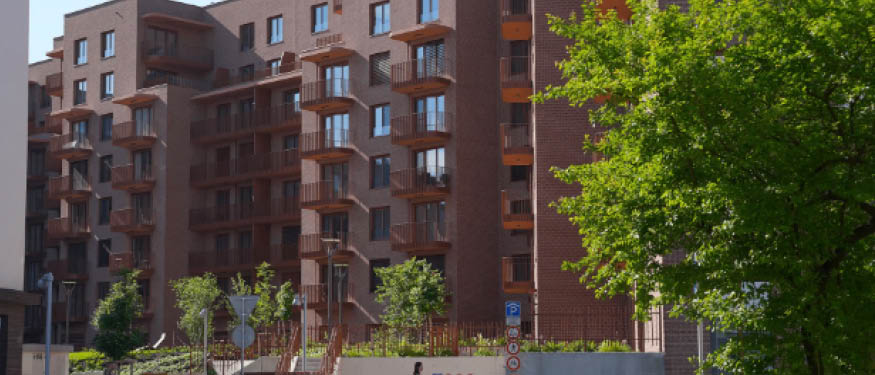In its decision dated 01.06.2023 and numbered 2022/120 E. 2023/107 K., published in the Official Gazette dated 01.08.2023 and numbered 32266, Turkish Constitutional Court ["Court"] decided to annul the provisions regarding the deferment of the announcement of the verdict ["DAV"] institution regulated in paragraphs 5 to 14 of Article 231 of the Turkish Code of Criminal Procedure ["TCCP"] No. 5271.
The provision subject to annulment was brought before the Court within the scope of the criminal case filed by Trabzon 2nd Criminal Court of First Instance for the crimes of "intentional injury" and "resisting to prevent the execution of duty" with an application for a concrete control of norm upon the conclusion that the DAV provision was contrary to the Constitution on the grounds that the judgement of DAV did not provide sufficient relief for the victims, that it led to the exemption of the perpetrators from punishment and that the state failed to fulfil its obligation to protect the physical and moral existence of individuals.
The Court ruled for the annulment of the first sentence of Article 231 para. 5 of the Code of Criminal Procedure, which regulates DAV, and other provisions that are no longer applicable, mainly on the grounds that the institution of DAV violates the right to a fair trial as it leads the defendant to waive the legal remedy of appeal "in advance", that it does not provide an adequate and effective remedy for the victim, that the decision of DAV results in impunity and therefore does not create a deterrent effect that can prevent criminal acts; in addition, the institution of DAV in its current form is insufficient to prevent arbitrary practices of public authorities.
The annulment decision will enter into force on August 1, 2024, and as of this date, the DAV institution will be prospectively removed from Turkish criminal law system. Until this date, the DAV regulation will remain in force and its implementation will continue.
DAV Institution in Criminal Procedure
The DAV , which is regulated between paragraphs 5 and 14 of Article 231 of TCCP, refers to the postponement of the announcement of the conviction to be given as a result of the criminal proceedings, subject to certain conditions. In the event that the conditions in question are met, the conviction judgment does not have any consequences for the defendant with the granting of a DAV decision.
In order for a DAV decision to be rendered; (i.) it must be determined that the sentence to be imposed as a result of the completion of the trial for the offense charged to the defendant, is imprisonment of two years or less or a judicial fine, (ii.) the defendant must not have a previous conviction for an intentional crime; and (iii.) the damage caused to the victim or the public by the committing of the crime must be compensated by full restitution, reinstatement or compensation; in addition, (iv.) the court must come to the conclusion that the defendant will not commit a crime again, taking into account defendant’s personal characteristics and defendant’s attitude and behaviour in the trial. Additionally, it is also required (v.) that the defendant must consent to the issuance of DAV decision. The defendant should be asked at the trial phase, before the judgment, whether they accept application of the DAV decision.
DAV decisions against the defendant are not recorded in the judicial registry but are recorded in another special registry which can only be accessed if requested by the public prosecutor, judge, or court in connection with an investigation or prosecution.
Upon the court’s DAV decision, the defendant is subjected to a five-year supervision period. During this supervision period, provided that the defendant does not commit a deliberate crime and acts in accordance with the obligations, the decision to defer the announcement of the verdict is annulled and the criminal case is dismissed. In the event that the defendant commits a deliberate crime or violates the aforementioned obligations during the supervision period, the court announces and executes the verdict which it has decided to defer.
Assessment and Reasoning of the Court
The Court made the following assessments and reasoning regarding the annulment of the DAV institution:
- In terms of legal remedies: The Court firstly addressed the provision of Article 231 para.12 of the TCCP regulating the legal remedy that can be pursued against DAV decisions, which the Court had previously decided to The Court emphasised that a trial which is essentially subject to appeal becomes subject to the objection upon the issuance of a DAV decision, and in this context, obliging the defendant to decide whether to accept the DAV decision at the beginning of the trial would create an unfair pressure on the defendant and impose an excessive burden on them; that this will of the defendant, which results in their waiving the right to appeal "in advance", at a stage before the establishment of the judgment by accepting the application of the DAV, did not meet the constitutional validity conditions. Based on this, the Court concluded that the deprivation of the right to appeal without a valid waiver violates the right to request a review of the judgement and the right of access to the court and ruled that the right to a fair trial regulated under Article 36 of the Constitution was violated. At this point, the Court also emphasised that there is no regulation on when the defendant will be asked whether they accept the application of DAV or not, and that the absence of a guarantee that the defendant will be asked this question after the judgement of conviction is contrary to the principle of legality.
- In terms of confiscation decisions: The Court also addressed the deficiencies in the confiscation process within the scope of the DAV regulation. The confiscation decision, which results in the transfer of ownership to the public as a result of criminal proceedings, imposes a restriction on individuals' property rights protected under Article 35 of the Constitution, therefore such a limitation must be in accordance with the necessities of protection of property rights and must provide sufficient guarantees. In this regard, the Court concluded that the DAV is also unconstitutional in terms of confiscation proceedings as there is no clear provision regarding when the confiscation decision will be executed, and that the legality of the limitation imposed on property rights by the confiscation decision imposed in cases where a DAV decision is rendered cannot be evaluated through the appeal, thus the proprietors are burdened excessively and are not provided sufficient guarantees.
- In terms of the obligation of the state to protect individuals' material and moral existence: Furthermore, the Court reminded the state's obligation to respect individuals' right to protect and enhance their material and moral existence under Article 17 of the Constitution, and not to cause them physical and mental harm, and to protect individuals from such harm. In this framework, the Court emphasized that if the state fails to take reasonable measures in this regard, its responsibility may arise under Article 17, para. 3 of the Constitution. The Court stated that proportional punishment and appropriate remedies for the victim are considered within the scope of this obligation and underlined that there should not be disproportionality between the crime committed and the punishment imposed, or the absence of any punishment, as it would not have a deterrent effect and would lead to impunity. In the decision, it was evaluated that the DAV regulation resulted in the defendant not receiving an executable sentence, in addition, the consent of the victim to the DAV application and the provision of a moral compensation for the victim were not sought, and for these reasons, the DAV did not provide an adequate and effective remedy for the victim.
- In terms of criminal acts of public officials: Lastly, the Court examined the DAV for the criminal acts of public officials and considered that the DAV provision, which creates a state of impunity for the criminal acts of public officials, especially those that constitute torture or ill-treatment under Article 17 of the Constitution, is contrary to the obligations of the state to impose punishments proportionate to the acts of the perpetrators and to provide an appropriate remedy for the victims.
In conclusion, the Court ruled for the annulment of the first sentence of Article 231 para.5 of the TCCP, which regulates the DAV, as well as the other provisions that are no longer applicable, on the grounds that the provision of DAV in its current form is insufficient to prevent arbitrary practices of public authorities and has a deterrent effect on fundamental rights and freedoms, especially freedom of expression and the right to organise meetings and demonstrations.
Our Assessment
The provisions of DAV, which was first introduced in the Anglo-Saxon legal system, entered the Turkish criminal law system for the first time in 2005 and many DAV decisions have been made since. In terms of criminal justice, the main objective of the DAV is the rehabilitation and reintegration of the defendant into society. Although this is the case, many problems have arisen in practice regarding the application of DAV.
In terms of the defendants, the institution of DAV has been criticised for violating the right to a fair trial, as they are forced to decide whether to accept the application of DAV at the beginning of the trial and thus are forced to waive their right to appeal at the beginning of the trial.
Moreover, the general opinion created by the DAV institution in terms of criminal justice and trust in the system should be addressed. In practice, it is observed that in cases where the defendant has not committed a deliberate crime before, the courts make a good behaviour discount in order to grant DAV decision, even if the lower limit of the penalty to be sentenced under the criminal law is higher, and thus DAV decision is rendered. This creates the perception in the society that certain offences will go unpunished and damages the trust of the society in the justice system. This situation leads to the prevention of the deterrent function of the punishment in terms of people who are prone to crime. In addition, due to the existence of the DAV, there is an opinion that the courts will render a judgement without adequate examination.
These issues were pointed out in the Court’s decision and the deficiencies of the DAV regulation in its current form in terms of the defendant and victims were emphasised, thus it was decided to annul the regulation on the DAV as it is contrary to Articles 13, 17, 35 and 36 of the Constitution. In this framework, the Court evaluated that the DAV regulation restricts the right to a fair trial for the defendant, prevents the criminal justice system from fulfilling its general prevention function, i.e. deterrence, which is one of the purposes of punishment, since it creates a de facto state of impunity, and does not provide the victim with an effective and adequate remedy since the consent of the victim to the DAV decision is not required. These evaluations have also been expressed in the doctrine and reveal the deficiencies of the DAV regulation in our criminal justice system.
With the entry into force of the annulment decision on August 1, 2024, the DAV will cease to exist in our legal system. Until this date, a new regulation may be made by the legislator. In such case, the DAV regulations may be reintroduced into the criminal procedure system with amendments such as completing the deficiencies mentioned in the Court's decision; in particular elimination of the uncertainty and unpredictability regarding when the defendant will be asked whether the defendant accepts the DAV, provide an adequate and effective remedy for the victim, limit the application of DAV, especially in cases where the perpetrator is a public official, especially in terms of torture or ill-treatment crimes. In addition, it is also advocated in the doctrine to introduce alternative institutions such as "postponement of the judgement", "postponement of the trial" or "postponement of the sentence" instead of DAV.
By Tarik Guleriuz, Partner, and Selin Nacar Ozturk, Associate, Guleryuz & Partners

















